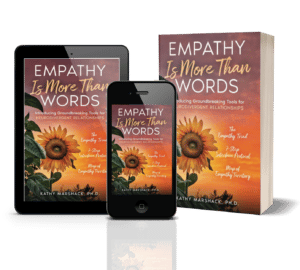
A 2014 article in the journal Social Cognitive and Affective Neuroscience identified a variation in a gene (CD38) associated with gratitude. While people with this gene have a heightened tendency toward experiencing gratitude, we can all work at increasing gratitude’s calming effects that lead to feelings of contentment and satisfaction.
Another scientific study found that even if you can’t think of anything to be grateful for, simply saying the words, “What am I grateful for?” changes your brain chemistry. Neural circuits are activated, stimulating the production of dopamine and serotonin. These neurotransmitters travel to the “feel good” part of the brain. Gratitude is a natural antidepressant!
And the more you stimulate these neural pathways through practicing gratitude, the stronger and more automatic they become. It’s like walking in deep snow. At first, it’s difficult. But each time you walk on the path, it becomes easier. Your brain works the same way. The more you make your gratitude neurons fire, the easier it is for your brain to think positively, so you feel content and grateful.
This means that what you choose to remember and focus on become the pathway the brain will automatically take. If you’re constantly looking at the negative, your thoughts and feelings become dark and worrisome automatically. You’ve worn that pathway in your brain. But pathways can be shifted. Just as a fresh layer of snow covers older trails, choosing to practice gratitude, shifts your attention to seeing constructive, positive themes in your life instead of destructive ones.
It’s easy to make a practice of gratitude by keeping a gratitude journal or consciously looking for ways to say “thank you” every day, even if it’s as simple as saying it when you wake up every morning.
If you suffer from severe anxiety or depression, practicing gratitude may not be enough. Consult with a mental health professional who can get you back on the path to mental health. If you live near Portland, OR/Vancouver, WA please contact my office and schedule an appointment.



